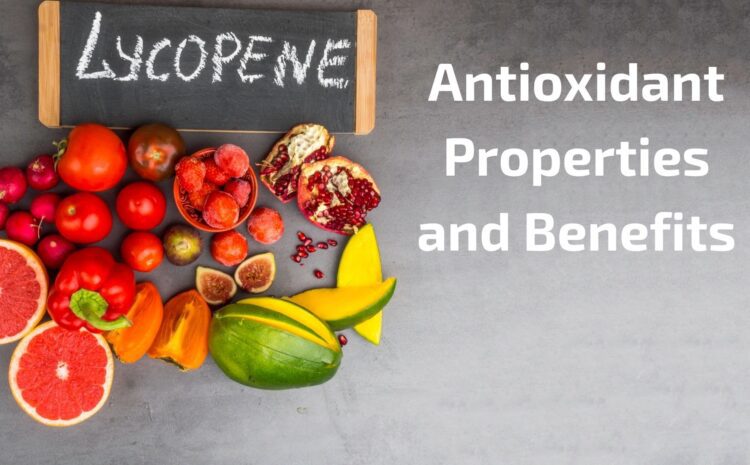
Free radicals or Reactive Oxygen Species (ROS) are waste substances produced by the cells as the human body processes food and reacts to its environment. Antioxidants help to negate these harmful free radicals thereby boosting health. This property of antioxidants has earned it the moniker free-radical scavengers.
Normally, the human body is capable of producing antioxidants called endogenous antioxidants. The dietary antioxidants are contained in foods that abound in vitamins A, C, and E. Endogenous antioxidants are found in living cells in the form of superoxide dismutase, reductase, glutathione oxidase, etc. seen in foods like carotenoids and polyphenols alike. This is precisely why every dietician recommends an increased intake of plant food that abounds in anti-oxidants in a bid to protect against diseases.
But dietary imbalances may result in an accumulation of free radicals. In that case, supplementing antioxidants can be a good way to tackle the excess free radicals. Increased production of free radicals in the body can trigger oxidative stress which in turn shall harm cells, endocrine system, and damage to hepatic (liver) tissues. Oxidative stress has been found to cause heart disease, cancer, arthritis, premature stroke, respiratory diseases, weakened immunity, Parkinson’s disease, etc.
What causes increased free radicals in the body? Myriad reasons can cause a spurt in free radical presence including prolonged exposure to UV rays, rigorous smoking, pollution, etc. Reducing the presence of free radicals in our body is the main objective of antioxidants.
With the burgeoning industrial revolution, the need for weightless, portable, easily disposable containers was becoming more prominent. This resulted in the invention and widespread use of polyethylene or ubiquitous plastic. Today, our environment is replete with BPA or Bisphenol, infamously called the endocrine disruptor xenoestrogen.
BPA has been notoriously linked with damaging the hepatic tissue, intervening in serum liver enzymes, causing higher hepatic oxidative stress, depleting antioxidants, causing lipid peroxidation, enhanced comet tail DNA%, and worst of all induced caspase-3, the henchman that runs amok to execute cells/ programmed cell death also known as apoptosis.
BPA is used in most polycarbonate plastic and epoxy resins that line food and beverage cans. It is found that BPA can immigrate into the food or water on heating and enter the human body. Because of its widespread use, both animals and humans are equally at risk. The liver is the human organ responsible for detoxification and BPA is metabolized in the liver. Eventually, BPA causes hepatic, renal, cerebral damage by producing ROS. BPA has also been found to cause lipid peroxidation thus reducing endogenous antioxidants which act as the defense against excessive free radicals.
The good news is that we have a panacea to solve all ills caused by BPA. This is where LYCOPENE comes into the picture.
Lycopene or LYC is plant-derived with strong antioxidant properties. It belongs to the phytochemical carotenoid family. It is the pigment that gives fruits like tomatoes, watermelons, grapefruit, etc. their characteristic color.
Apart from shielding the body against the deleterious effects of unchecked free radicals, lycopene protects our body from the damage caused through the ingestion or exposure to pesticides, herbicides, monosodium glutamate or popularly called the MSG present in lip-smacking snacks chips, and condiments like ketchup, mayonnaise, chips, etc. and a handful of fungi.
The benefits of lycopene don’t end there. The antioxidant property in lycopene is said to hinder the progression of certain cancers like breast cancer and prostate cancer by impeding tumor growth. A study conducted on animals evinces that lycopene inhibits the growth of cancer cells in kidneys. Studies in humans have shown that higher intake of carotenoids like lycopene have lowered the risk of lung and prostate cancers by 30 to 50 %
However, it must be noted here that lycopene only inhibits cancer growth and it hasn’t been found that lycopene is potent to eliminate cancer by the root.
Lycopene has the unique property of impeding premature heart diseases, thus lowering one’s chances of death via heart disease. It achieves this remarkable feat by keeping a check on the risk factors that simulate heart disease. By diminishing the free-radical damage, it alternatively shrinks LDL or the “bad” cholesterol and boosts HDL or the “good” cholesterol.
By reducing heart disease risk factors, Lycopene is a miracle compound that lowers the risk of stroke by 31% and reduces premature death by 39%.
Therefore, people who suffer from higher oxidative stress, chain smokers, chronic diabetic patients, older population are more vulnerable to heart diseases and cancers. Thus, Lycopene could benefit these people the most.
The lesser-known benefit of Lycopene is the protection against sunburn.
Other benefits include:
–Delaying the onset of cataract
-Mitigating the risk of macular degeneration-the number one cause of blindness in the older generation.
-Alleviates neuropathic pain
– Protects brain by preventing seizures
-Impedes memory loss
-Antioxidant property helps in slowing apoptosis and thus results in stronger bones
So, what are the sources of Lycopene?
Sun-dried tomatoes, tomato puree, guava, watermelon, fresh tomatoes, canned tomatoes, papaya, pink grapefruit, sweet red peppers, etc. In short, most red and pink colored fruits and vegetables contain lycopene.
Lycopene supplementation is beneficial in reducing the deleterious effects of oxidative injury to tissue that is triggered by environmental toxins. It retrieves peroxyl radicals thus impeding lipid peroxidation.
Lycopene supplements can be another great way to ensure that at least 10-20 mg of lycopene is taken regularly. However, Lycopene supplements may not be safe for consumption for pregnant women.
MULTIBEETA



